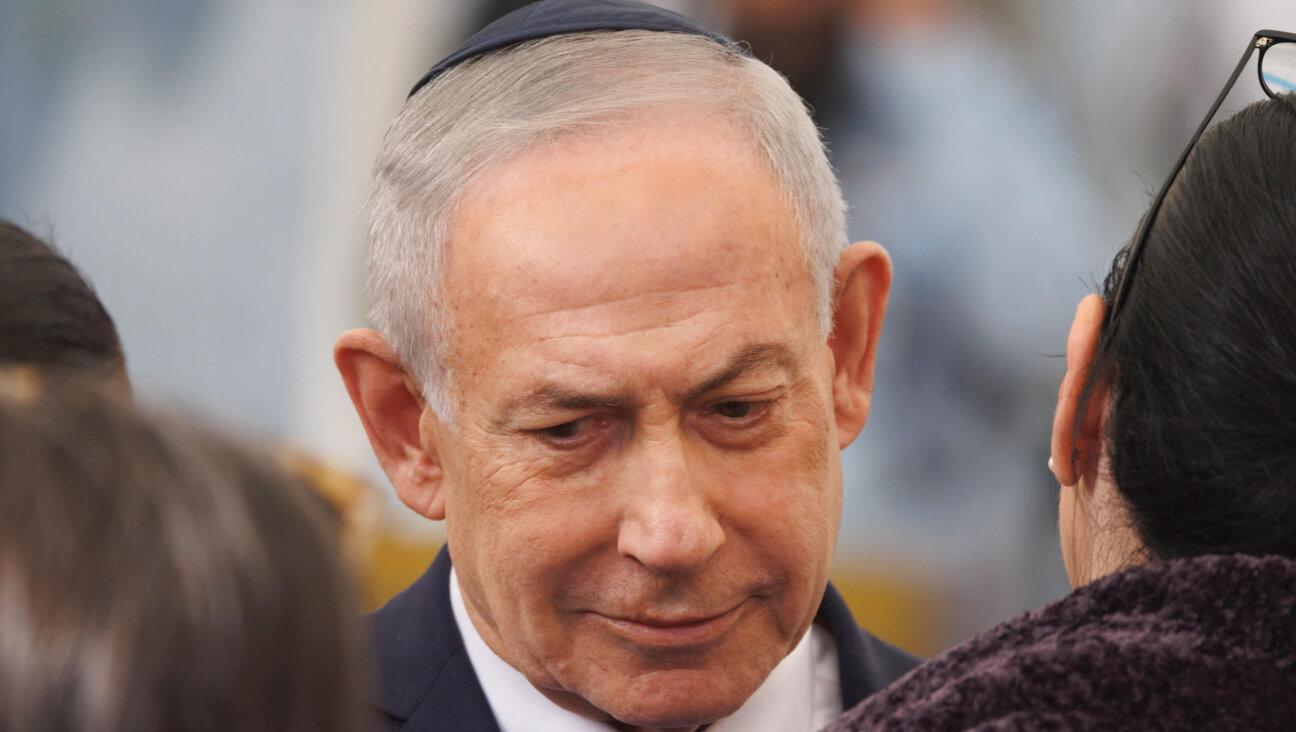Soros and the Jews
Our annual Forward Fifty list, published last week, always seems to raise a host of eyebrows, mostly over who is left off. We try to list the 50 persons we see as most influential in shaping the public life of the American Jewish community, whether by their roles within the community or by public activity that advances Jewish values. The tricky part is defining those Jewish values. We draw the line pretty broadly. Our bottom line is that candidates must view their own activity as an expression of their Jewish identity or values. Just being Jewish and being famous isn’t enough. That’s why we’ve left out people whose vast impact might make them seem obvious candidates at first glance, like Alan Greenspan or George Soros.
Well, we goofed. It turns out that Soros, the billionaire currency trader and philanthropist, sees himself as very much in the tradition of Jewish activism. That being the case, the prodigious scope of his giving — $5 billion during the last few decades, by most accounts — should have landed him at the top of our list.
Since publishing the list we’ve had a chance to view a videotape of a talk Soros gave earlier this month to the Jewish Funders Network. In it the Hungarian-born Holocaust survivor delivered, for the first time we’re aware of, a frank and seemingly heartfelt presentation of what he considers the Jewish roots of his philanthropy. “I am very much in the Jewish tradition of giving,” Soros told his audience. “That is a wonderful tradition. If you look around, Jews are more philanthropic than other people, and I definitely come from that tradition.”
Soros went on to note that in the age-old divide between particularist and universalist Jewish activism, he has focused on the universalist. Most of his giving has gone toward advancing “the open society,” as he calls his pro-democracy efforts in Eastern Europe, Asia and elsewhere. But that quest for universal rights, he said, is in itself an aspect of Jewish tradition and is “the major reason why Jews have made such great contributions. I consider that to be the Jewish genius.”
That seems clear enough. If we failed to give credit where credit was due, we owe Soros an apology.
But we’re not the only ones. During the last few weeks Soros has been subjected to a flood of protest because of press accounts of his funders’ network talk, which claimed he had “blamed Jews for antisemitism,” in the words of one overheated headline.
The fuss is because of a comment he made in reply to a question about the new rise of antisemitism. “I think there is a resurgence of antisemitism, and it is of concern to me,” Soros said. “I think that the policies followed by the Bush administration and the Sharon administration contribute to that.”
Blaming the victim? Hardly. Soros was merely joining the growing list of observers who note that the new antisemitism is a mix of old prejudices and current protests feeding on each other. Here’s how the Anti-Defamation League put it in its June 2002 survey of antisemitic attitudes: “For the first time, negative attitudes toward Israel and concern that American Jews have too much influence over U.S. Middle East policy are helping to foster anti-Semitic beliefs.”
Since then more and more voices have been added, saying pretty much the same thing, including the American deputy defense secretary, Paul Wolfowitz, and Israeli army chief of staff, Moshe Ya’alon. The hatred sweeping much of the Muslim world is partly fueled by anger over American and Israeli actions, and changes in policy could presumably change the landscape, if only just a bit.
Soros went on to say — at far greater length — that he is “also concerned about my own role, because the new antisemitism holds that the Jews rule the world.” As a billionaire international human rights activist, he said, it is “unfortunately an unintended consequence of my activity” that “I also contribute to that image.” That doesn’t mean that he — or Sharon or Bush — should behave differently. It does mean we should all look before we leap.













